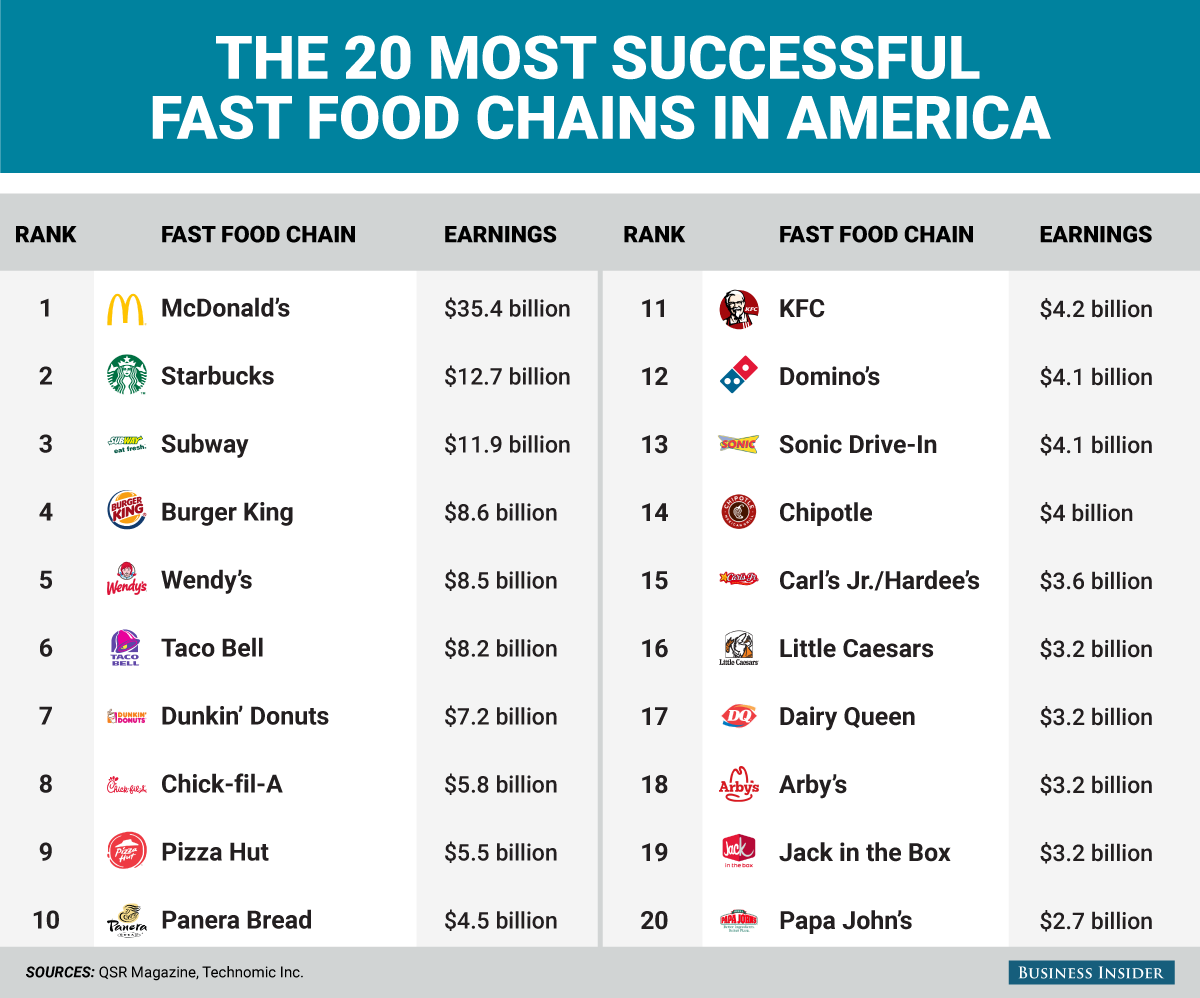Senator Elizbeth Warren, tireless fighter for the American consumer, tweeted this declaration a few weeks ago, “We don't need another private equity deal that could lead to higher food prices for consumers”.
What looming monopoly could she be referring to? The Kroger-Albertson’s huge supermarket merger? Farms or food processors being taken over? No, the threat is even worse. Warren is worked up about the very core of the American diet; sandwiches.
Yes, sandwiches. The company that owns Jimmy John’s and Arby’s bought the Subway sandwich chain, and the Senator is hotter than a panini over the dire implications.
Why the blustering over some fast-food company? Perhaps it’s because at first glance, the number of outlets being absorbed seems huge.
Every company on this list sells some kind of sandwich, and Subway does indeed have a lot of locations. Arby’s is relatively small though, and Jimmy John’s doesn’t even make this list. But Warren’s concern seems understandable, considering the massive number of Subway outlets. That is, unless you look at how much business these outlets actually do.
In terms of sales volume, Subway ranks far lower than the market leader McDonalds. This is because the average outlet does only about half a million dollars a year in volume, compared to Jimmy John’s, which does twice as much per store.
The new Subway owner, Roark Capital, owns various other restaurants including Buffalo Wild Wings and Carvel. Most of their brands are low-cost fast-food outlets like Sonic Hamburgers. As you can see from the chart above, Americans have plenty of large brands to choose from when it comes to sandwiches, burgers, pizza or chicken. So why would this purchase lead to higher food prices for the hungry American?
Maybe it’s because when companies become big, they have so much marketing power, that they can charge whatever they wish for any quality of food they provide. Unless, of course, they can’t.
Let’s look at the market leader, McDonald’s. They do more volume than the next three largest outlets combined. It turns out that not only can McDonald’s not control the market, but the largest burger chain is afraid that they are in danger of losing share to newcomers.
The execs at McDonald’s are painfully aware that consumers have noticed that there is quite a difference between the sandwiches promised in their ads, and what you see when you open that cardboard container. (The advertisement version of this sandwich, by the way, would not actually fit in a McDonald’s container.)
The marketers at McDonald’s have been concerned that consumers are getting used to high quality burgers at places like Five Guys and Smashburger. They were floored by a poll that showed McDonald’s coming in at only number 13 among ‘most desirable burgers’. 49,000 polled consumers preferred White Castle the most, and Burger King number 2.
So the company decided that their hamburgers needed an upgrade. The result is over 50 small changes to their classic hamburgers. These include tiny changes, like spreading their sesame seeds over the buns more attractively and adding more sauce to the sandwich. Other changes include cooking the onions on top of the burgers, using room temperature cheese so it melts better, and changing the bun to a brioche style formulation that retains heat better.
Applying 50 changes to a market-leading sandwich indicates that the consumer is indeed in charge of their purchase choices, and that even market leaders must respond to the needs of the market.
But there is another factor to competition in this case, a factor ignored by our illustrious Senator. Unlike business mergers of video game companies or steel mills, the products offered by Subway and Jimmy John’s can be made by every single consumer, without exotic materials or equipment, in the privacy of their own kitchens. Subway cannot charge too much for a tuna salad sandwich because it’s too easy to make one yourself. We are willing to pay extra for convenience, but only to a point. The acquisition of the Subway chain does not alter this economic formula.
So, if our food prices are not going to be affected by this deal, why is Warren choking on her Italian sub on whole wheat? Perhaps it’s because too many members of Congress see their job as protecting the American consumer against any change to the current order, especially when it involves large companies. Members of Congress like Elizabeth Warren are automatically suspicious of success, especially big success. Like her soul mate Linda Khan at the FTC, Warren believes that no company can possibly become big and successful except by cheating the public. We had better have Government control these bad actors.
The fact that consumers love companies like Microsoft, Amazon, Prudential, and dozens of others who have been sued, matters little. Warren and Khan know that consumers are foolish and must be protected against the evils of big business. Of course, Khan’s record of government lawsuits have been nearly universal failures (because the lawsuits have had little legal basis) and Warren’s sandwich complaint will likely get no farther than the odd social media post.
Perhaps it’s time for the good Senator to pay more attention to real domestic problems like our out-of-control deficit, loss of campus free speech, mounting acts of discrimination and a looming crisis in the cost of social programs.
Warren and others in Congress need to pay more attention to their roles, and less attention to our rolls.
Reform Congress is a collaboration between Stephen Wahrhaftig and Liz Terwilliger.







